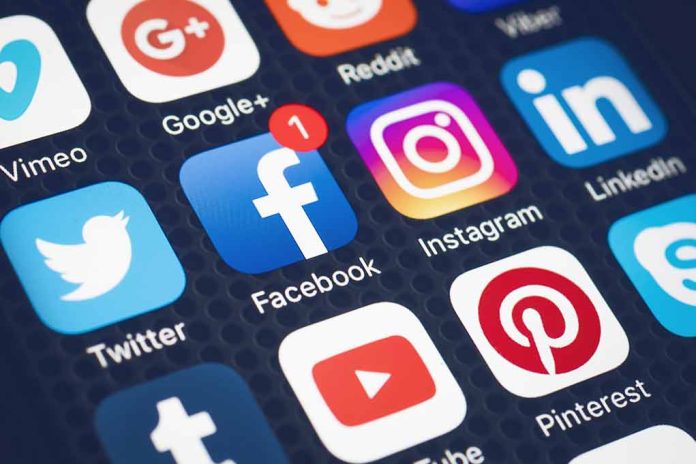
After 23 years of connecting people worldwide, video chat pioneer Skype has finally shut down as Microsoft pushes users to Teams, marking the end of a revolutionary communication platform that once dominated the digital landscape.
Key Takeaways
- Skype, founded in Luxembourg in 2003, has officially shut down after 23 years as Microsoft redirects users to Teams
- Microsoft acquired Skype for $8.5 billion in 2011 but the platform lost market share to competitors like Zoom and Microsoft Teams
- Users have until January 2026 to transfer their data to Microsoft Teams, or they can manually export their contact information and chat history
- The shutdown reflects the rapid evolution of digital communication technologies and the challenges of maintaining relevance in a competitive landscape
- Despite its demise, Skype leaves behind a legacy as the first platform to offer free computer-to-computer calls globally
The Rise and Fall of a Communication Giant
Skype revolutionized how people communicated when it launched in 2003, introducing free computer-to-computer calls at a time when such technology was still in its infancy. The Luxembourg-based company quickly gained popularity as the first mainstream platform to offer accessible video calling, establishing itself as the go-to service for both personal and business communications across geographical boundaries. Microsoft recognized this potential and acquired Skype in 2011 for a staggering $8.5 billion, following eBay’s earlier purchase for $2.6 billion in 2005 and subsequent $1.4 billion write-down.
Despite a brief resurgence during the COVID-19 pandemic in March 2020, Skype ultimately failed to maintain its competitive edge against newer platforms that offered more modern interfaces and robust features. The platform’s decline accelerated as users migrated to alternatives like Zoom for video conferencing, Microsoft Teams for workplace communication, and various messaging apps for casual conversations. Microsoft announced in February that May 5, 2025, would mark the final day of Skype’s operation, giving users a limited time to prepare for the transition and save their valuable data.
END OF AN ERA
For a generation that grew up saying “Skype me,” it's a bittersweet goodbye.
As of May 5, Microsoft has officially begun shutting down Skype — the video-calling app that once brought families closer, bridged long-distance love, and helped the world stay connected.… pic.twitter.com/MWd7DGkG07
— Bilyonaryo News Channel (@bncdotph) May 5, 2025
Microsoft’s Strategic Pivot to Teams
Microsoft’s decision to retire Skype aligns with its broader strategy to consolidate its communication platforms under the Teams banner. According to Microsoft, this move aims to “streamline our free consumer communications offerings so we can more easily adapt to customer needs,” says Jeff Teper of Microsoft. The tech giant has been steadily enhancing Teams’ capabilities, positioning it as a direct competitor to Zoom and other video conferencing platforms. The timing of this transition corresponds with significant growth in Teams usage, with Microsoft reporting that “the number of minutes spent in meetings by consumer users of Teams has grown 4X” in the past two years.
“For a lot of people, it was the first time they had ever used a video chat software, and it was honestly a market leader at the time,” said James Hennessy.
Users can now migrate to Microsoft Teams Free, which offers similar capabilities to Skype along with enhanced features. When logging into Teams with Skype credentials, most contacts and chat histories will automatically transfer. Teams supports group calls with up to 10,000 participants, significantly exceeding Skype’s capabilities. However, certain data won’t migrate automatically, including chats with Teams work accounts, Skype for Business history, private conversations, and bot content. Users who don’t wish to switch to Teams have been advised to manually export their data through Skype’s settings menu.
The Legacy and Public Reaction
As Skype powers down its servers, reactions from users worldwide have been mixed. Some mourn the loss of a platform that defined early internet communication, while others celebrate its retirement as the natural evolution of technology. On social media, users have been sharing nostalgic memories of Skype’s iconic ringtone and interface that connected families across oceans before international calling became commonplace. The shutdown represents more than just the end of a software application—it symbolizes the passing of an era in digital communication history.
“Skype has been an integral part of shaping modern communications and supporting countless meaningful moments, and we are honored to have been part of the journey,” said Jeff Teper of Microsoft.
Skype’s demise serves as a cautionary tale about the fragility of digital dominance in a rapidly evolving technological landscape. Despite its groundbreaking start and massive user base, the platform couldn’t sustain innovation at the pace required to fend off newer, more agile competitors. For businesses and consumers alike, this transition highlights the importance of adaptability in the digital age. As one user poignantly noted on social media, “Rest in peace, Skype. You served us well,” capturing the sentiment of millions who grew up with the platform’s distinctive sounds and blue interface as their window to the world.



